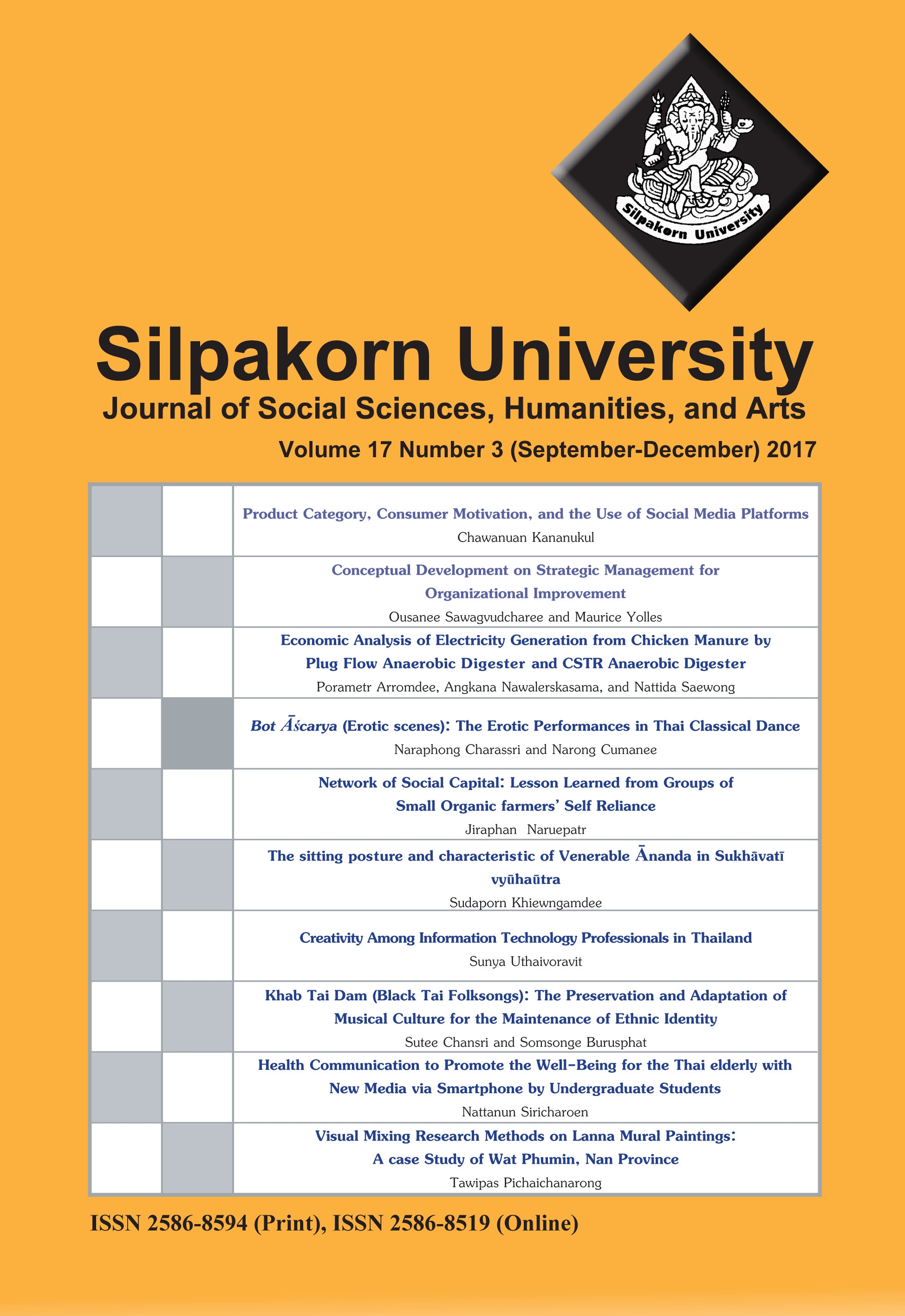Network of Social Capital: Lesson Learned from Groups of Small Organic farmers’ Self Reliance
Main Article Content
Abstract
The paper is a documentary research on network of social capital in the groups of small organic farmers. The objective is to analysis how the social capital factor sustains the small organic farmers’ self reliance under the competitive economical globalization, comparing today’s small chemical farmers. The result showed that networking was embedded in Thai rural communities, enabled horizontal and vertical relationship value among people, groups and organizations, with shared value s, trust-based culture, and mutual benefits. Social capital is from civic virtue, reciprocity principle, reducing relation gap among people, being as cultural resource and enhancing efficiency. The more using the social capital, the more quality and quantity it has. The collective actions of Sanam Chai Khet and Chorrakae Samphan farmers in Chachoengsao and Suphanburi provinces accumulated core value, social capital, having made groups’ self reliance more than 10 years. Starting savings groups, universal social welfare, learning center and organic production respectively, two groups could utilize and broaden their interpersonal networks for the well-beings of all in the community to secure the basic living requirements. At present, their market channels are extended both domestic and export. The products consisting of organic rice and vegetable is sold on the domestic market for both local and urban consumers without the middleman process; conversely, only organic rice is sold through groups’ economical networks on the export. The lesson indicated the ability to create and maintain the community’s dual economy, local and global, be realistic by the being of social capital with its studied factors of trust and reciprocity norms, networking, continuous learning and relying on knowledge, and leadership.
Downloads
Article Details
All rights reserved. Apart from citations for the purposes of research, private study, or criticism and review,no part of this publication may be reproduced, stored or transmitted in any other form without prior written permission by the publisher.
References
Kaewthep, K. (1995) Community Culture Working Tools. Bangkok: Catholic Council for development of Thailand.
Naruepatr, J. (2013) Farmers’ Group Social Capital: The Case Study on Farmers School Network. Ph.D. Thesis in Social work. Faculty of Social Administration. Thammasat University.
Nirathorn, N. (2000) The Working Network Establishment: A few Considerations. Bangkok: International Project on Child Labor Eradication, International Labor Organization.
Suzuki, N. & Srisontisuk, S. (2008) Civil Society: Movement and Development in Northeast Thailand. Khon Kaen: Printing House of Khon Kaen University. Reteieved on May 20, 2016, from www.greennet.or.th


